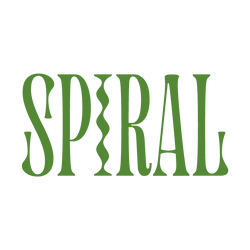NOTES ON SUSTAINABILITY
what is sustainable floristry?
floristry becomes sustainable when its practices support the environmental, social and economic needs of current and future generations. as an industry, floristry has a hugely negative impact on the natural world (ironically so). despite floristry being a celebration of nature's offerings, the industry is in dire need of implementing new, sustainable methods within its entire supply chain in order to exist for future generations. the main issues are the use of over-packaging/plastic waste, plastic floral foam, chemicals and pesticides as well as imported product.
the main issues:
over-packaging/plastic waste and floral foam
the majority of flowers are transported and processed (cut, stripped and bunched) in single-use, plastic sleeves that are bound for landfill. many florists still use an excess amount of plastic packaging to hydrate, protect and decorate their bunches. since the 1960s, plastic floral foam has been overwhelming the most used method of keeping flowers hydrated when creating arrangements or constructing floral installations. this green foam is toxic, and terrible for the environment from manufacture to disposal, full of micro plastics.
imported flowers: chemicals, pesticides and social responsibility
since 2020/21, more than 50% of flowers sold in Australia are imported from overseas. imported flowers offer florists the opportunity to access a year-round growing season coupled with consistent quality of product at low cost. countries with favourable climates for growth such as Kenya, Columbia, Ecuador and Ethiopia are the main exporters of flowers. however, the carbon footprint left by these flowers travelling thousands of kilometres is huge. this is furthered by unsustainable farming methods (such as monoculture planting) and the requirement to keep flowers refrigerated throughout transport. imported cut flowers must also be fumigated to ensure no unwanted pests or diseases are brought into Australia, but mitigating this biosecurity risk means exposing the flowers - and consequently consumers - to harsh chemicals and toxins.
it is important to note that all persons involved in the cut flower trade are not guaranteed safe and fair working conditions. despite the cost of refrigerated air and truck freight for imported flowers, they are still the more affordable option for many florists over Australian grown flowers. we have to ask ourselves why that is, and what is safeguarding the rights of people harvesting and processing these flowers overseas.
Australian floral industry
there has been promising progress in the last few years in relation to sustainable floristry, pushed by florists, growers and consumers alike. there is an upward trend of utilising sustainable (reusable or biodegradable) mechanics and methods for floristry, as well as an increase in micro-flower farms across Australia and the recognition of their value. however, Australia's federal government still does not require cut flowers to have a Country of Origin label, meaning florists and consumers are often unable to discern where in fact their flowers have been grown.
SPIRAL and sustainable floristry: implementation
we are continuously learning and working toward improving our own sustainability practices. currently, we only source Australian grown flowers (with the exclusion of some orchid varieties, which are sourced from New Zealand as a last resort) with the majority of our flowers (over 50%) being locally grown and sourced - within a 50 km radius of our shop. we have established relationships with growers from Canberra and the surrounding regions, and always prioritise their product when seasonally available.
all our green waste is collected and composted weekly on a regenerative farm in Bungendore, NSW. we only use reusable or recycled mechanics for arrangements and installations, such as chicken wire, kenzans, twine and paper tape. our bouquets are packaged in compostable hydration gel and presented in recycled paper wrap, or in a reusable glass vase. any plastic sleeves or packaging that is unavoidable in sourcing product is either recycled or reused by us.
if you have any questions or concerns, please contact us either via phone or email
040008 1234
hello@spiralbotanicals.com.au
we are always open to learning more, doing more and creating a safe space for dialogue regarding how we can all improve upon caring for this world and each other.
learn more
